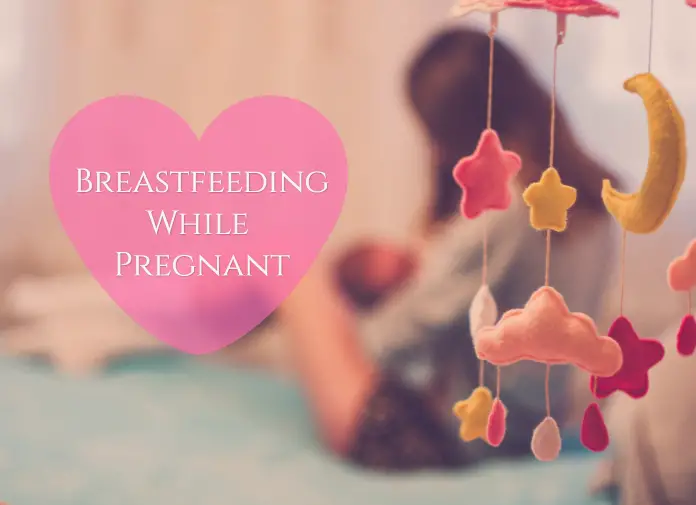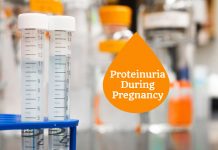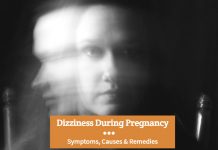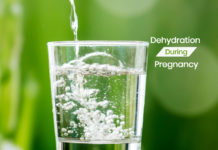Once you have a baby, love oodles between you, baby and baby’s dad! While getting all cozy and cuddling, you get surprising news. Another baby’s on the way! Healthy moms can go ahead with it but what about the first baby. Breastfeeding while pregnant for the second time so soon isn’t as cute and comfy.
Pregnant and breastfeeding toddler requires knowing you how your body is going to respond to the situation. Facts about breastfeeding during pregnancy state that you temporarily get a natural conception.
After you cross the barrier and get pregnant while breastfeeding, your juggling task begins. As the pregnancy will take its course, your milk supply will reduce affecting your toddler or baby.
Hormones circulating such as oxytocin, induce mild uterine contractions posing a risk of miscarriage while breastfeeding. Your milk will not only reduce in amount during pregnancy, but it will have a weird taste.
Babies who can eat solids will wean off your pregnant mother’s breast easily. However, if the baby feeds for comfort along with nutrition then weaning off will be tough.
Once you cross the pregnancy phase, the milk supply will increase multiple folds making it uncomfortable for the newborn. Managing the breastfeeding turns won’t need wearing a bracelet to assign a breast for a baby.
When your new one arrives, you need to give the colostrum to him or her before the elder sibling.
Is it advisable to breastfeed while pregnant?
The question best gets the answer from a lactation expert after looking at your present health status. Is it safe to breastfeed during pregnancy? In cases of preterm labor history or uterine bleeding, it is not safe to breastfeed while pregnant.
Not only for you or your first baby, but breastfeeding also poses a danger for life inside you. Remember reading about oxytocin? It is the hormone that induces labor and milk ejection.
During breastfeeding, your body continues producing oxytocin sans labor contractions. Mild uterine contractions if happen can cause implantation failure for the baby inside.

What happens if you breastfeed while pregnant?
A breastfeeding pregnant woman naturally worries about both of her children. How does breastfeeding while pregnant affect fetus? Mild contractions of the uterus due to oxytocin are not enough for inducing labor.
If you are not at risk of preterm delivery, then oxytocin from breastfeeding won’t lead to pregnancy complications. While some of your hormones do enter the breast milk, but your toddler is at no risk.
Most women worry about breastfeeding during pregnancy can lead to miscarriage. The reason why such a concern exists is that the hormone – oxytocin that leads to lactation is also the one that induces labor.
In fact, the order is opposite; oxytocin induces labor and later milk ejection. When you start nursing, then prolactin hormone regulates the milk ejection reflex due to suckling.
Prolactin is the one that prevents pregnancy by suppressing the menstrual cycle. Nonetheless, it is possible that you get pregnant while breastfeeding. Some women continue to ovulate even during the nursing period.
When should you stop breastfeeding while pregnant?
Under a few circumstances, you need to wean off your child when pregnant. Women having low lying placenta or any other placental complication can have a miscarriage due to breastfeeding.
Your doctor will recommend you to wean off your breastfeeding child if you have a history of preterm labor. If your doctor prevents you from having sex during pregnancy, then you need to stop breastfeeding.
Sex during pregnancy is generally not safe when your uterine muscles are weak. Any movement in that area can pose a risk to pregnancy, and mild contractions are not bearable.
Breastfeeding and pregnant with twins is another case when you need to stop the prior. If you still want to continue to breastfeed while pregnant with twins you can ask your doctor about it. With extra caution and limiting the duration, you may proceed.
Can you breastfeed while pregnant?
Even when there is no risk due to nursing while pregnant, you will have other difficulties. It all depends on your willpower and health status.
Your body is already exhausted due to the previous pregnancy and did not get enough time to rejuvenate. Now the morning sickness, leg cramps, backache, and nausea will hit back.
Managing breastfeeding alone is tough. Milk duct block, mastitis, and cracked nipples are most common problems.
Moms struggling with low milk supply while pregnant might want to give up. It’s entirely up to the woman whether or not she wants to breastfeed. Whether you pump, use baby formula or breastfeed you can still be the best mum!
Breastfeeding while pregnant miscarriage is not common unless the risk already exists. Other difficulties such as latching on, milk supply while pregnant and the taste of breast milk are likely to occur.
Breastfeeding while pregnant problems
1) Morning sickness gets worse
Most women experience heightened morning sickness when they are breastfeeding. The breastfeeding hormones make morning sickness worse.
Morning sickness and breastfeeding while pregnant simultaneously are challenging because they lead to loss of fluids and dizziness. In case your morning sickness is severe you may have to consider entirely weaning off your baby.
Once the first trimester is over morning sickness reduces and so does the milk supply.
2) Fatigue
Most breastfeeding pregnant women experience fatigue. A nursing mother needs more calories than a pregnant woman. You are in a state where you need calories equivalent to both.
You need to consider the energy requirement in addition to the already extra calories for pregnancy. That sums up to 600-800 calories extra than your regular diet. Breastfeeding during the first trimester won’t demand such calorie intake because the baby to be is too tiny.
However, in the later trimesters, you need to consume the additional calories to be able to sustain the three of you. Fluid intake is also essential to prevent dehydration during pregnancy.
3) Taste of milk changes
During the fourth or fifth month, your breasts will have colostrum production. The inclusion of the cholesterol-rich milk will help the baby to wean off.
Some breastfed kids don’t realize the difference and continue. Others who are particular of the taste of breast milk wean off. Your doctor will monitor the weight gain of your baby to judge whether it is safe to stop breastfeeding altogether.
Habituation of solids or milk supplement needs to start at an earlier stage to prevent malnutrition issues. Sudden weaning off can pose a risk to the healthy development of the baby.
4) Breastfeeding while pregnant milk supply
Milk supply during pregnancy reduces midway the second trimester. When the milk supply diminishes, your baby will spend longer on your breasts. Toddlers are not very mild while latching.
Sore breasts and nipples need your caution while latching to avoid bleeding and cracking. Once you have your second baby then you will have a sudden rise in milk. You must first feed your younger child as suckling is mild and cannot force out milk.
Later the elder sibling can manage even with the lesser milk oozing out. Similarly, a toddler or baby being nursed for long can ease clogged milk duct.
5) Baby bump causes latch on problem
With the growing belly, it will be difficult to breastfeed in certain positions. Your sore breasts and bump won’t let you sit and feed. Lying down sideways or baby standing during breastfeeding are some options.
For babies feeding to fall asleep, this won’t be troublesome. But your baby might not want to feed in a particular position. In fact, most babies let go off breastfeeding from their pregnant mothers after the apparent pregnancy changes. You will have to work out a new position that suits both of you.
Even after you have your second baby, breastfeeding the older one will be difficult. It is essential to keep calm and understand that just like your baby is experiencing a lot of change.
6) Sore nipples get worse
During pregnancy, the hormones already make nipples itchy and painful to add on breastfeeding miseries. When you have sore nipples, bleeding and cracking occur frequently. Be careful while latching on your baby.
Try out things like counting and stopping after 10 or 5 and then ask the baby to play. When you get a pause in between your nipples will relax.
Intermittent feeding will also divert your baby’s attention and eventually help weaning off.
7) Dietary requirements increase
As you already need 350-450 extra calories during pregnancy, an additional 500 for breastfeeding is challenging. You will naturally feel hungrier, so eating won’t be a trouble.
During the first trimester, you will not need extra calories for the baby to come. You will have to force feed to compensate breastfeeding energy demand.
8) Timing of breastfeeding
You need to give the newborn the colostrum rich milk. Some women fix a breast for a baby. But that won’t be possible during the early stage.
Your elder baby will help relieve engorged breasts when your little one is full. Once you feed off one breast, next turn will have the other one. It will be visible, and you won’t need to wear and bracelets to remember!
9) Increase in milk after delivery
Milk supply and breastfeeding see a downfall and rise. The milk supply increases after the baby is born. The previous breastfed baby may not enjoy the gushing flow. Feeding the newborn first will help you with this problem too!
10) Laxative rich milk after the baby is born
The milk produced during the first few weeks after parturition is rich in laxatives. Your elder baby doesn’t need them. It is for the newborn as they don’t move enough to be able to digest the food. The amount of laxatives in breast milk is not ideal for the grown up.
Other than physiological problems you will also encounter psychological barriers. Your baby might not be ready to share food with the baby to be.
So you need to counsel your child to prepare for the coming baby. The earlier you start and how skillfully you plant the seed will determine how easy will be breastfeeding two babies.
Is it ok to use a breast pump while pregnant?
For mothers who are having their first child breast-pumping is not needed. There is hardly any benefit from pumping before the baby is born. On the contrary, breast pumping after 36 weeks can lead to labor.
One of the many ways of inducing labor includes using a breast pump. If you are breastfeeding your baby using a breast-pump, then reduce the duration of pumping.
Consult with your gynecologist about the safety of breast pump during pregnancy.
If I stop breastfeeding can I start again?
Once you have your next baby, your breasts will start producing milk. Even if you stop breastfeeding while pregnant, you can resume later. Whether or not your weaned off baby will begin again cannot be predicted.
The reason for breastfeeding and personality of the child will decide whether you can restart breastfeeding.
If the breastfeeding suspension was not lengthy, your baby might also want to start again. But after a long period of stopping breastfeeding your baby might not want to feed.









